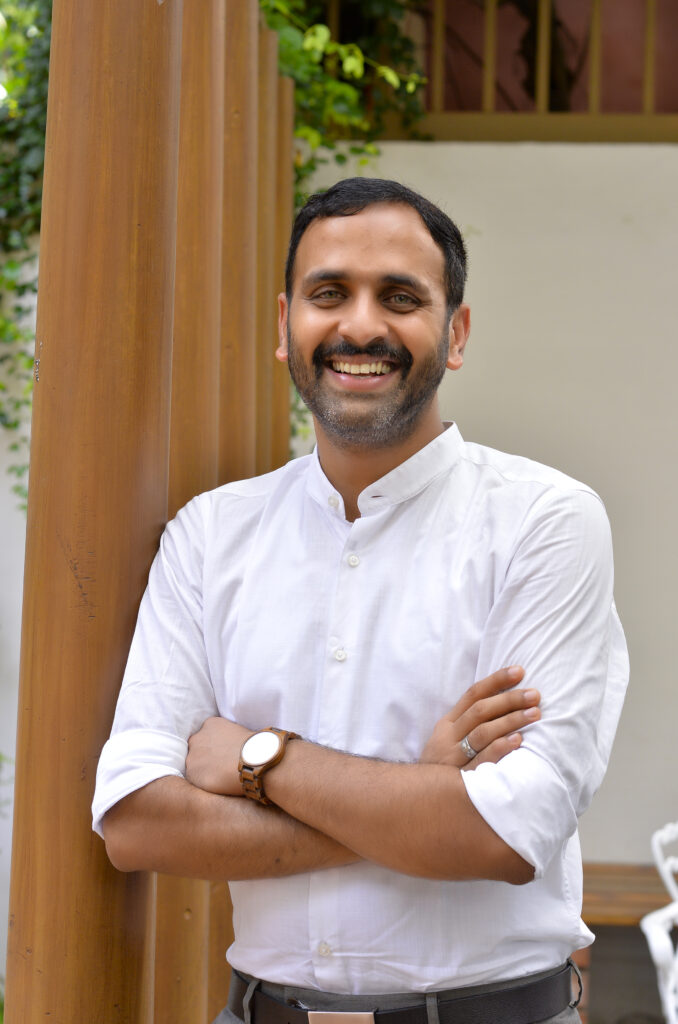Obesity is a growing global health crisis, recognized by the World Health Organization (WHO) as one of the leading public health challenges of the 21st century. Defined as an abnormal or excessive accumulation of body fat that presents a risk to health, obesity has serious consequences, including an increased likelihood of heart disease, type 2 diabetes, and certain cancers. According to the WHO, more than 1.9 billion adults worldwide were overweight in 2016, and of these, over 650 million were classified as obese. This number continues to rise, with projections indicating that nearly 1 billion people globally will be living with obesity by 2030.
The causes of obesity are complex, involving a combination of genetics, lifestyle factors such as poor diet and lack of physical activity, and even emotional health. Despite numerous modern interventions, the rates of obesity continue to increase, particularly in urbanized, sedentary societies. The rise in childhood obesity is also alarming, with 39 million children under the age of 5 categorized as overweight or obese in 2020, further exacerbating the future burden of non-communicable diseases.In this context, holistic health systems like Ayurveda offer a unique and comprehensive approach to addressing obesity. Ayurveda’s focus on the balance of the body, mind, and spirit can provide long-term solutions to weight management, considering not just physical factors but also the underlying mental and emotional causes. In the following interview, Cornelia Kuschel from SpaDreams asks Dr. Jobin, an expert Ayurvedic physician from Madukkakuzhy Ayurveda Center, to share his insights into how this ancient system of medicine approaches obesity, offers treatments, and achieves successful, lasting results for those affected

Obesity as Described by the Ayurvedic Texts
SpaDreams: Welcome, Dr. Jobin, and thank you for joining us today to discuss Ayurveda’s approach to one of the world’s most pressing health issues—obesity.
Obesity has become a major global health concern, with millions affected worldwide. To start off could you provide some context on how Ayurveda, with its ancient roots, perceives obesity as a health issue?
Dr. Jobin: In Ayurveda, obesity is referred to as Sthoulya and has been acknowledged as a significant health issue for centuries. Ancient Ayurvedic texts like the Charaka Samhita describe obesity as a condition of imbalance in the Kapha dosha, which governs the structure and lubrication in the body. When Kapha is aggravated, it leads to the accumulation of excess fat and fluids. Excessive weight is seen as a result of over-nourishment of the fat tissue (meda dhatu) and depletion of the muscle tissue (mamsa dhatu), leading to increased body weight, fatigue, and a range of associated health issues. Ayurveda emphasizes that obesity is not merely a physical condition but the result of various factors including poor diet, lack of physical activity, stress, and emotional imbalance.
The Ayurvedic Approach to Modern Obesity
SpaDreams: How does Ayurveda approach obesity in today’s world, especially with modern lifestyles contributing to the problem? Have there been any significant shifts in the approach over time?
Dr. Jobin: While the core principles of Ayurveda remain the same, modern challenges such as sedentary lifestyles, processed foods, and stress have been integrated into our approach. Today, we combine time-tested Ayurvedic principles with newer tools like yoga, meditation, and stress management to offer a comprehensive solution. The goal is still the same—restoring balance in the body and mind—but we are now better equipped to address the challenges of the modern world. The modern lifestyle—marked by stress, unhealthy diet, and lack of movement—aggravates Kapha dosha, which governs stability and growth in the body. When Kapha is out of balance, it can lead to sluggish metabolism, excess fat accumulation, and lethargy.Ayurveda’s approach to treating obesity includes detoxification, dosha balancing, and long-term lifestyle modifications that aim to restore the body’s natural harmony. It’s a comprehensive approach that doesn’t focus solely on weight loss but on overall health and wellness.
Mind-Body Connection: How Ayurveda Addresses the Psychological Roots of Obesity
SpaDreams: Psychological factors often play a significant role in obesity. How does Ayurveda view the connection between mental health and weight management?
Dr. Jobin: Ayurveda places great emphasis on the mind-body connection. Emotional imbalances, such as stress or anxiety, often lead to overeating or poor lifestyle choices, contributing to obesity. Treatments like Shirodhara (pouring warm oil on the forehead) or specific herbs like Brahmi and Ashwagandha help to reduce stress and emotional eating. By addressing the mental aspects of obesity, Ayurveda provides a more holistic approach that helps clients gain control over their cravings and emotional triggers.
Therapies and Treatments in Ayurvedic Weight Management
SpaDreams: Could you elaborate on the main therapies used in Ayurveda for managing obesity?
Dr. Jobin: Absolutely. Panchakarma, the traditional Ayurvedic detoxification therapy, is a cornerstone of obesity treatment. It involves five cleansing procedures that remove toxins (ama) from the body, improve digestion, and reset metabolism. Another important therapy is Udvartana, a herbal powder massage that stimulates fat metabolism and helps to reduce body fat and cellulite.
We also use Basti (medicated enemas) to help balance the doshas and remove excess fat from the system. In combination with these treatments, herbal medications are prescribed to improve digestion, boost metabolism, and aid in fat reduction.
Harnessing Nature: Key Ayurvedic Herbs for Effective Obesity Treatment
SpaDreams: Does Ayurveda recommend any specific herbs or plants for obesity treatment?
Dr. Jobin: Yes, several herbs are integral to Ayurvedic obesity treatment. Triphala is commonly used for its digestive and detoxifying properties. Guggulu is highly effective in reducing fat tissue and cholesterol. Lasuna (garlic) is another herb known for its lipid-lowering properties. Other herbs like Turmeric, Fenugreek, and Cinnamon help in improving metabolism and managing blood sugar levels. These herbs are carefully selected based on the individual’s doshic balance.

The Role of Physical Activity in Ayurvedic Obesity Treatment: Finding Balance Through Movement
SpaDreams: How important is physical activity in conjunction with Ayurvedic treatments for obesity?
Dr. Jobin: Physical activity is a vital component of Ayurvedic obesity treatment. Vyayama, or exercise, helps stimulate the digestive fire (Agni) and burn excess fat. We encourage clients to practice yoga and engage in moderate exercise like walking. Yoga is especially beneficial as it not only helps with weight loss but also brings mental and emotional balance, which is crucial for long-term success.
Tackling Emotional Eating and Food Cravings: How Ayurveda Restores Balance
SpaDreams: How does Ayurveda approach issues like emotional eating and food cravings?
Dr. Jobin: Emotional eating is often a sign of imbalance in the Vata or Kapha dosha. Ayurveda uses a combination of herbal remedies like Ashwagandha and mindfulness practices to address emotional eating. By teaching mindful eating habits and calming the mind through yoga or meditation, we help clients control food cravings and eat in a way that supports overall well-being.
Understanding Doshas and Weight Gain: Why Kapha Is More Prone to Obesity
SpaDreams: Could you explain the relationship between doshas and obesity? Are certain dosha types more prone to weight gain?
Dr. Jobin: Kapha dosha is primarily linked to weight gain because of its role in the body’s structure and fluid balance. When Kapha is aggravated, it leads to the accumulation of excess fat and fluids. However, it’s important to note that Vata and Pitta types can also become overweight due to imbalances, albeit for different reasons. For example, Vata imbalances may cause erratic eating habits, while Pitta imbalances can lead to overeating due to high metabolism and cravings for rich foods.
Exploring Madukkakuzhy Ayurveda Center: A Sanctuary for Holistic Healing and Personalized Care
SpaDreams: Thank you for providing such detailed insights into the Ayurvedic understanding of obesity. Now, let’s delve into your daily work and the practical application of Ayurveda in treating obesity. Could you start by telling us more about the Madukkakuzhy Ayurveda Center? What sets it apart, and what types of treatments and therapies do you offer there?
Dr. Jobin: Madukkakuzhy Ayurveda Center is a traditional Ayurveda healing center with over seven generations of Ayurvedic heritage. We offer authentic treatments rooted in ancient Ayurvedic wisdom. Our focus is on holistic healing, addressing not only physical ailments but also mental and emotional well-being. We specialize in Panchakarma detoxification therapies, Ayurvedic treatments for chronic illnesses, and wellness programs like obesity management, stress relief, and rejuvenation. Our center provides personalized care, combining ancient practices with modern-day needs, ensuring each guest receives tailored treatments that restore balance and harmony.
SpaDreams: You are working at the Ayurveda Center in Germany. Could you share more about your experience there? We often receive inquiries about what it’s like to offer authentic Ayurvedic treatments in Germany. How do you ensure that traditional practices are preserved while effectively adapting them for your clients in this context?
Dr. Jobin: Offering authentic Ayurvedic treatments in Germany presents both unique opportunities and challenges. At our center, we are deeply committed to preserving the integrity of traditional Ayurvedic practices while adapting them to meet the needs of our clients here.
To maintain authenticity, we ensure that our practitioners are highly trained in classical Ayurvedic methods, and we source high-quality herbs and oils directly from trusted suppliers. Our treatments follow the same principles as those practiced in India, with a focus on balancing the doshas, detoxifying the body, and promoting overall well-being.
Adapting these practices for our German clients involves a careful consideration of local cultural and lifestyle differences. For instance, we often adjust treatment protocols to align with clients’ dietary preferences and daily routines. We also emphasize education, helping clients understand how Ayurveda can be integrated into their lives effectively.
Our goal is to provide a genuine Ayurvedic experience that resonates with our clients while respecting the cultural and practical nuances of practicing in Germany. This approach ensures that our clients receive the full benefits of Ayurveda, tailored to their individual needs and contexts.

Exploring Gut Health: How Ayurveda Supports Digestive Wellness and Weight Management
SpaDreams: We know you to be a specialist in gut health, how does Ayurveda address the importance of maintaining a healthy gut, and what role does it play in managing obesity?
Dr. Jobin: Ayurveda places significant emphasis on gut health, or “Agni,” which is central to effective digestion and overall well-being. A robust Agni is crucial for processing nutrients and avoiding the buildup of toxins, or Ama, that can contribute to weight gain. In managing obesity, Ayurveda recommends a diet of easily digestible, whole foods, complemented by spices such as ginger and cumin to support digestive function. Maintaining a balanced gut microbiome through probiotic-rich foods and mindful eating practices is also essential. By focusing on gut health, Ayurveda helps address one of the root causes of obesity and supports effective weight management.
Innovative Integration: The Benefits of Combining Ayurveda and Fasting for Effective Weight Loss
SpaDreams: Combining Ayurveda with fasting is an innovative approach to weight management. How does Ayurveda integrate fasting into its holistic practices, and what benefits does this new combination offer?
Dr. Jobin: The integration of fasting with Ayurvedic practices is indeed an emerging and innovative approach. Ayurveda acknowledges the benefits of fasting, or “Upavasa,” as a tool for detoxification and digestive reset. This method is not about extreme deprivation but rather about moderate, mindful fasting that aligns with one’s dosha and health needs. By incorporating intermittent fasting or periodic detoxification, Ayurveda aims to enhance digestive efficiency and promote weight loss. The combination of Ayurveda and fasting supports metabolic balance and can be tailored to individual requirements, offering a contemporary way to achieve long-term wellness and effective weight management.
Handling Obesity at the Madukkakuzhy Ayurveda Center
SpaDreams: How do you handle clients wishing to tackle obesity at the Madukkakuzhy Ayurveda Center? What is the process you follow when a new client arrives? Additionally, we have previously discussed how Ayurveda supports digestive wellness and the innovative combination of Ayurveda and fasting. How do these aspects integrate into the treatment approach at your center?
Dr. Jobin: At the Madukkakuzhy Ayurveda Center, we adopt a holistic, individualized approach for each client. When a new client arrives, we start with a thorough consultation to assess their unique constitution or Prakriti, current imbalances, and the underlying causes of their obesity. This evaluation includes examining their lifestyle, dietary habits, and mental health, as these elements are often interlinked with weight issues. Based on this comprehensive assessment, we create a personalized treatment plan that may involve detoxification therapies like Panchakarma, specific herbal remedies, and a customized diet aimed at balancing the doshas and promoting healthy, sustained weight loss. We also incorporate insights from our focus on gut health and fasting, as mentioned earlier, to enhance overall effectiveness. Continuous monitoring and follow-up ensure that clients stay aligned with their health goals even after their stay.
Success Stories in Ayurvedic Obesity Treatment
SpaDreams: Finally, could you share a success story from your practice where Ayurvedic treatment helped someone overcome obesity?
Dr. Jobin: Certainly. One of my patients, a woman in her mid-40s, came to me after struggling with obesity for over a decade. She had tried various diets and exercise plans with little success. We started her on a Panchakarma detox, followed by herbal medications and lifestyle changes tailored to her Kapha constitution. After three months, she had lost over 12 kilograms, but more importantly, her energy levels were higher, and her blood sugar levels had stabilized.
Another case involved a man in his 50s who, after undergoing an Ayurvedic weight management program, experienced significant improvements in both his physical health and mental clarity. The combination of therapies, herbal treatments, and dietary changes allowed him to achieve lasting results, shedding excess weight and regaining his vitality.
Guidelines for Lasting Weight Loss
SpaDreams: Many guests who invest in an Ayurvedic weight loss program are keen to understand how they can sustain their results and incorporate Ayurvedic principles into their daily lives. Could you share the key Ayurvedic guidelines for maintaining weight loss and offer some additional advice for integrating these practices into everyday routines?
Dr. Jobin: A balanced diet is essential. Some key guidelines include:
- Eat freshly prepared, whole foods that are easy to digest. Avoid processed and refined foods.
- Incorporate spices like ginger, turmeric, and black pepper into meals to boost digestion.
- Favor light, warm, and dry foods for Kapha individuals, such as barley, millet, and green vegetables.
- Follow a regular meal schedule and avoid snacking between meals to allow proper digestion.
- Drink warm water or herbal teas throughout the day to support metabolism.
Other advice would be these points:
· Regular Meals: Eat at regular intervals to maintain digestive balance. Avoid skipping meals and try to eat your largest meal at lunchtime when your digestive fire (Agni) is strongest.
· Mindful Eating: Practice mindful eating by chewing food thoroughly and eating slowly. This helps improve digestion and prevents overeating.
· Hydration: Drink plenty of water throughout the day. Herbal teas such as ginger or fennel can aid digestion and support weight maintenance.
· Physical Activity: Incorporate regular exercise that suits your dosha. Yoga, walking, and other moderate activities can help maintain weight and promote overall well-being.
· Stress Management: Manage stress through practices like meditation, deep breathing, or yoga. Stress can lead to emotional eating and disrupt weight maintenance.· Sleep Hygiene: Ensure adequate and restful sleep, as poor sleep can affect metabolism and weight. This is particularly important and an aspect often overlooked or neglected in present times. .
The Essential Role of a Proper Sleep Routine in Metabolism and Weight Management
SpaDreams: You mentioned sleep hygiene as a crucial aspect of maintaining weight. Could you elaborate on the role of a proper sleep routine in sustaining metabolism and weight management?
Dr. Jobin: Absolutely, sleep plays a major role in regulating metabolism. From an Ayurvedic perspective, the body needs sufficient rest to maintain the natural balance of the doshas, especially Kapha and Vata, which are closely tied to weight management. When sleep is disrupted or inadequate, it can lead to an imbalance in these doshas, resulting in slower metabolism, increased cravings, and a tendency to overeat, particularly for foods that are not beneficial.
To sustain proper metabolism, we recommend a regular sleep routine that aligns with the body’s natural rhythms. Ideally, going to bed by 10 p.m. and waking up early around sunrise helps optimize metabolic function. This routine aligns with the Ayurvedic concept of the body’s natural cycles, or “circadian rhythm,” which influences digestion, hormone release, and energy regulation. Quality sleep allows the body to repair itself, reset digestion, and process the nutrients we’ve consumed, which is essential for healthy weight management.
Ayurvedic Treatment Duration and Follow-Up: A Lifelong Journey for Lasting Results
SpaDreams: That’s a very insightful point about sleep and metabolism. As we wrap up, could you tell us more about the recommended duration of Ayurvedic treatment for weight loss and the importance of follow-up assessments?
Dr. Jobin: The duration of treatment is quite important to see lasting results. For effective weight management, we suggest a minimum stay of two to three weeks for a full Ayurvedic program. This allows enough time for the body to go through detoxification (Panchakarma), rebalancing of the doshas, and the implementation of lifestyle changes under professional supervision.
Following the initial treatment, it is crucial to maintain regular follow-up assessments, whether online or in-person. These check-ups, ideally every six months, help ensure that the guest is continuing on the right path, addressing any imbalances that might arise, and adapting the lifestyle recommendations as needed. Ayurveda is not just a one-time solution but a lifelong journey, and these follow-ups play a key role in sustaining the Ayurvedic way of living for optimal health and weight management.
SpaDreams: Thank you, Dr. Jobin, for sharing your valuable insights into Ayurvedic approaches to obesity and the holistic methods employed at the Madukkakuzhy Ayurveda Center. Your expertise and detailed explanations provide a deeper understanding of how Ayurveda can effectively address modern health challenges and support lasting well-being. We appreciate your time and contributions to this enlightening discussion, and we look forward to sharing this knowledge with our readers.
To learn more about Ayurveda’s holistic approach to health and weight management, we invite you to explore the serene surroundings of our expert’s Ayurveda center by selecting one of the specialized programs. For those who wish to explore even more, SpaDreams offers further information on Ayurveda Therapy or about Ayurveda Weight Loss programs. You can also explore the growing presence of Ayurveda in Germany, where Ayurveda is becoming an accessible, enriching option for many.
The expert:
Dr. Jobin Madukkakuzhy is an eighth generation Ayurvedic practitioner and medical director of Madukkakuzhy Ayurveda, a nine-generation family establishment with over 10 years of clinical presence in Germany. He studied at SDM Ayurveda College and Rajiv Gandhi University in India and trained with Ayurveda scholars and specialists worldwide. Since 2006, he has led international seminars and mindfulness programs across Europe and the USA, promoting authentic Ayurveda, particularly in collaboration with the German Medical Society for Ayurveda Medicine (DÄGAM), and has served as a guest lecturer in Germany.








Leave a reply